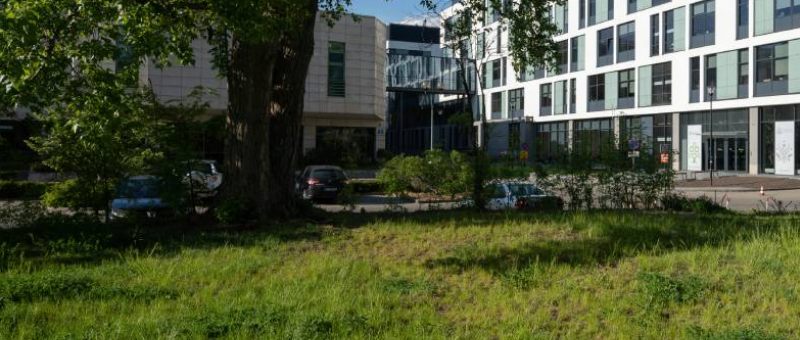Urban greenery management
The importance of ecosystem services provided by trees in planning and management of urban areas (NCN)

Project description
Urban trees provide a number of ecosystem services, such as regulating the microclimate of urban areas, improving the sense of aesthetics and creating conditions conducive to recreation, sequestering and storing carbon dioxide, limiting and slowing down the runoff of rainwater, or improving air quality. These services have their measurable value, and economists have been trying to value it for many years. This study provides an example of such a valuation in relation to the service consisting in improving air quality as a result of the absorption of selected pollutants (SO2, NO2, and PM2.5) by urban trees growing in Warsaw. The amounts of pollutants absorbed by trees in Warsaw, estimated using the i- Tree Eco software, and their unit external cost estimated within the ExternE project , indicate that urban trees growing in Warsaw provide a service in the field of air purification from SO2, NO2, and PM2.5 worth approximately PLN 1,800,000 (750,000–2,900,000) per year.
The key factor in the extent of ecosystem services provided by trees is their size, or more precisely, the size of their total leaf area. When the total leaf area of trees increases, the multi-directional benefits generated by trees increase. In this context, it should be recognized that where possible (where spatial conditions allow it), trees of “large species” (characterized by a large total leaf area) should be planted. Such trees will potentially provide the greatest value of ecosystem services during their life. However, it should also be borne in mind that the actual value of ecosystem services that trees will generate during their life is influenced not only by the size of the trees, but also by their resistance to the unfavourable habitat conditions prevailing in a given place. If a given species does not demonstrate resistance to the difficult habitat conditions in which it grows, the tree will begin to die and thus cease to provide ecosystem services. Careful selection of tree species, taking into account their resistance to difficult site conditions, is therefore very important, especially when planting trees along busy streets, where the conditions there are the most difficult.
The study, which analyzed decisions regarding tree planting along the main arteries of Warsaw in the years 2012-2017, showed that this situation does not always occur. The analysis conducted in this study shows that tree species that were simply larger were planted more often, and that the decisions of city officials in Warsaw regarding the selection of tree species for planting along the main arteries of the city were primarily influenced by the current species composition of trees growing there. Importantly, however, the study also showed that their decisions were not statistically significantly influenced by deadwood indicators characterizing the tree species growing there.
The analysis of the urban greenery management system in Warsaw until 2017 allowed us to notice that such a situation could result from the phenomenon described in the agency theory as the superior-subordinate problem and related phenomena described in the economic theory as “negative selection” and “moral hazard”. As a result of the fact that people making decisions about the species composition of newly planted trees had no incentive to put additional effort into checking whether the species present were fully adapted to the existing habitat, and if they were not, to make choices of new species based on the results of detailed analyses of the condition of plants, current spatial and habitat conditions, so as to increase the chance of making a choice that maximized the well-being of the city’s residents, decisions were made primarily based on their own intuition, which resulted in a suboptimal species composition of planted trees. Thus, the results of the conducted study confirm the main hypothesis of the study that the lack of motivational correctness of the contract between employees making decisions about the species composition of planted trees and their supervisor may constitute one of the institutional barriers leading to a suboptimal species composition of urban trees from the point of view of social well-being.
The project was implemented in 2017-2020 with a PRELUDIUM NCN (National Science Centre) research grant. The project manager was Dr. Zbigniew Szkop.